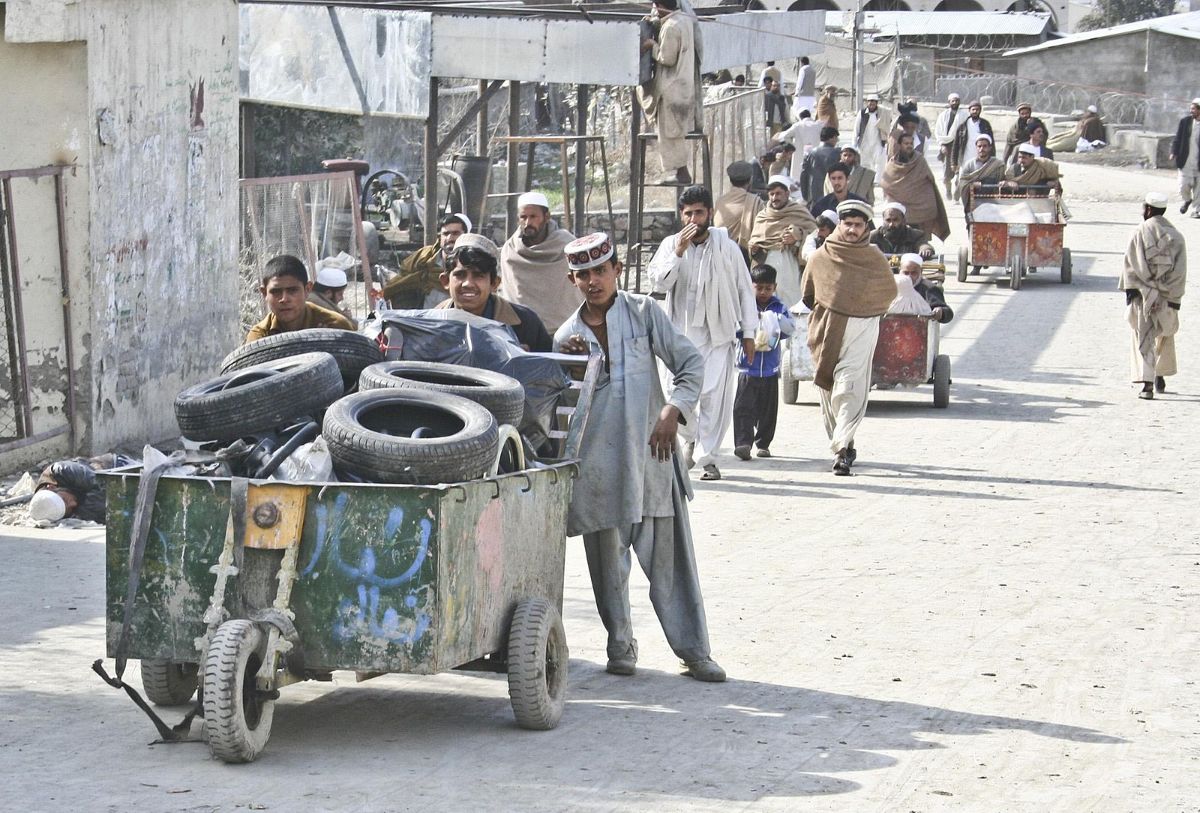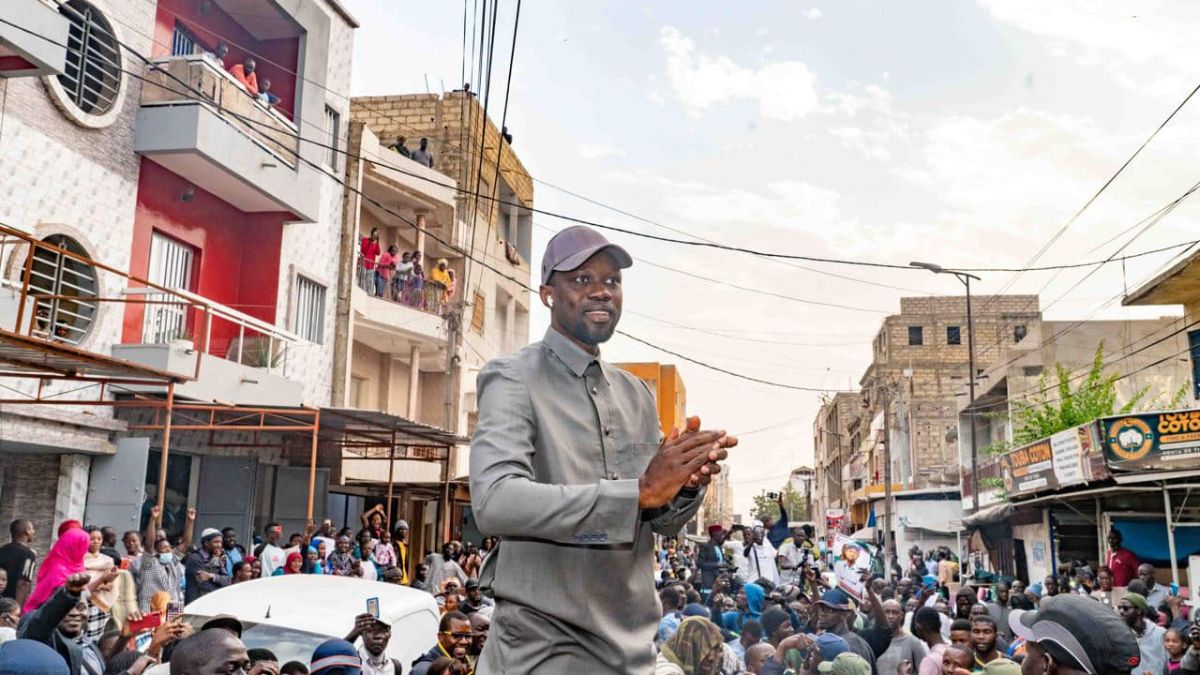Welcome to Factal Forecast, a look at the week’s biggest stories from the editors at Factal.
We publish our forward-looking note each Thursday to help you get a jump-start on the week ahead.
Iranian missile strikes in Iraq, Syria and Pakistan this week left several people killed and others injured. In this week’s Factal Forecast podcast, Senior Editor Jimmy Lovaas and Editor Agnese Boffano discuss how the strikes – which Iran claims targeted “anti-Iran” groups – are unique to other Iran-backed actions and how they have ratcheted up regional tensions as the war in Gaza heads towards its 15th week.
Listen now or download on your favorite platform.
Week of Jan. 19-26
A Look Ahead
Jan. 20 – Deadline for list of Senegal election candidates
The final list of candidates for the Senegalese general election on Feb. 25 will be completed on Saturday.
What’s happened so far
There has been months of back and forth regarding the candidacy of the main opposition leader Ousmane Sonko, who suffered another major setback earlier this month in his attempt to run after the country’s Supreme Court upheld a defamation conviction. According to his lawyer, his candidacy was rejected on grounds that his application was incomplete. So far, 21 candidates have made it through the sponsorship phase, which entails securing enough signatures in their support.
The impact
With Sonko currently out of the running, it is yet unclear who will represent the main opposition to current President Macky Sall. Sonko’s PASTEF party previously named Bassirou Diomaye Faye as an option, despite being in prison. The exclusion of Sonko, who is popular among young voters, could lead to protests over the lack of credible opposition to the current government. Meanwhile, Prime Minister Amadou Ba, the former Dakar Mayor Khalifa Sall and former government minister Karim Wade are among those already on the list of approved candidates.
Jan. 22 – India inaugurates largest Hindu temple
Indian Prime Minister Narendra Modi will inaugurate the country’s largest Hindu temple, Ram Mandir, to great fanfare in the flashpoint holy city of Ayodhya on Monday after a week of preceding rituals.
What’s happened so far
The still-incomplete Ram Mandir stands at the site of a demolished 16th century mosque, Babri Masjid, which was destroyed by Hindu hard-liners in 1992, leading to communal violence nationwide that killed thousands of people, mostly Muslims. Modi and his Hindu nationalist Bharatiya Janata Party have long pledged to build a temple where Babri Masjid once stood, breaking ground in 2020 after the Supreme Court ruled in favor of building a Hindu temple on the contested grounds.
The impact
Thousands of guests are expected to attend the consecration ceremony on Monday, with security on high alert. Ram Mandir will also open to the public beginning Jan. 23, with thousands of visitors expected daily, and city officials estimate millions of tourists will visit the city each month. The temple’s opening holds major significance for Modi and his Hindu nationalist supporters, especially as they seek a third term in power in April’s general elections. Muslims residents in Ayodhya, however, are fearful of potential escalations in already tense Hindu-Muslim relations, given the temple’s contentious history.
Explore 15 trends challenging risk intelligence including: generative AI, media manipulation, AI detection, geopolitics, elections, brand reputation, labor action, social media, supply chains, cybersecurity and more
Jan. 23 – New Hampshire primary
On Tuesday, New Hampshire will hold the first-in-the-nation presidential primary elections, despite a boycott from the Democratic National Committee.
What’s happened so far
New Hampshire follows the Iowa caucuses as the first state presidential primary election. Former President Donald Trump is coming off a record-breaking victory over the field in the Hawkeye State, though extremely cold temperatures reduced turnout. President Joe Biden is not officially on the ballot in New Hamsphire after he attempted to overhaul the DNC’s primary calendar last year. His supporters in the Granite State instead are waging a shoestring write-in campaign to hand Biden what the DNC says is a “meaningless” win over longshot challengers Marianne Williamson and Minnesota Rep. Dean Phillips.
The impact
New Hampshire could represent the first minor turbulence Trump will face on his attempted journey back into the Oval Office. Despite finishing a distant third in Iowa, Trump’s former UN Ambassador Nikki Haley is polling within single digits of Trump in New Hampshire on the back of the state’s less dogmatically partisan GOP electorate. Trump, however, remains the overwhelming favorite to win the Republican nomination.
Jan. 24 – National anti-government labor strike across Argentina
On Wednesday, Argentina’s largest labor union and several other organizations will hold a national general strike, the first of the year.
What’s happened so far
Following the sprawling reform package proposed by President Javier Milei, the General Confederation of Labor (CGT) called for several mobilizations against the economic reforms, as well as a national general strike. Milei attempted to use an emergency decree to pass the package, which wants to privatize a plethora of public companies, impose export taxes and overhaul labor rights, but was eventually blocked by an Argentinian court. Transport, opposition parties and rural workers’ unions are all set to take part and are expected to cause significant travel disruptions.
The impact
This is the first national general strike called by the CGT since 2019 and attests to how impactful critics fear Milei’s reform package will be if it is passed into law. It will also be the first major test to Milei’s presidency, with Milei already calling the syndicate’s leaders “enemies” and defense minister Patricia Bullrich warning fines will follow. It is also yet to be seen how authorities will enforce the new controversial and hard-line anti-picketing law passed in December.
Jan. 25 – Nepal National Assembly election
On Thursday, voters in Nepal will elect 20 new members of the country’s National Assembly.
What’s happened so far
The National Assembly is the upper house of Nepal’s parliament, comprised of 59 seats, and the House of Representatives is the larger chamber of 275. Members of the National Assembly are divided into three classes, with a batch elected every two years for a six-year term. In this election, 19 of the 20 retiring seats will be voted on, with the remaining seat appointed by the country’s government. The election is being held before their terms expire in March.
The impact
With a third of seats available, the balance of power could shift, but center-left groups continue to dominate the country’s political scene and look set to maintain their grasp on power.
Jan. 25 – ECOWAS-Niger summit
A delegation from the West African bloc ECOWAS is due to hold a summit with Niger’s junta on Thursday to discuss the nation’s path back to democratic rule following a military coup in July 2023.
What’s happened so far
At a December 2023 summit, ECOWAS appointed a three-member committee composed of the leaders of Togo, Sierra Leone and Benin to negotiate with Niger’s junta on a return to constitutional order. The bloc has pledged to lift crippling economic sanctions on Niger provided it sees progress toward civilian rule, but has retained the remote threat of a possible use of force if the military junta fails to engage with the ECOWAS process. In mid-December, an ECOWAS court found Niger’s ousted President Mohamed Bazoum is arbitrarily detained and called for his immediate reinstatement.
The impact
The summit was originally due to take place Jan. 10, but was delayed for 15 days at the request of Niger’s junta to allow them to organize a national dialogue. A preliminary iteration of these talks was held with around 300 political stakeholders in Algeria on Jan. 1 and talks are set to continue as a condition of the democratic transition. No date has yet been set for elections.
What Else Matters

Pakistan shuts border crossing with Afghanistan
Hundreds of trucks remain stranded at the Torkham border crossing between Pakistan and Afghanistan, effectively shutting down commerce at the region’s busiest crossing, following Islamabad’s decision to make passports and visas mandatory for Afghan drivers entering the country. Pakistan had warned they would institute visa requirements, the latest step in a reciprocal cycle of diplomatic tensions between the two countries that includes Pakistan accusing Afghanistan of harboring Pakistani Taliban militants and the expulsion of Afghan migrants.
Watch for: Talks continue between both governments to address the issue but thus far have failed, with both sides accusing the other of being uncooperative. The closure has effectively frozen trade with many of the trucks queued at Torkham containing perishable goods, while locals also say it hampers access to medical care. While unresolved, the closure will result in shocks to trade and a further deterioration of ties as Afghan authorities say they do not have the resources to issue visas en masse, and Pakistan has committed to closing further crossings, including Gholam Khan on Feb. 1.
IRGC missile strikes in Iraq, Syria and Pakistan
Iran’s Islamic Revolutionary Guard Corps (IRGC) launched multiple ballistic missiles on Monday evening at what the group claims were “Israeli spy headquarters” in Erbil, the capital of Iraq’s semi-autonomous Kurdistan region. According to Kurdish authorities, at least four civilians were killed and five others were injured. Approximately eight explosions were heard in Erbil, prompting the international airport to halt operations. Tehran also claimed responsibility for targeting bases allegedly linked to the so-called Islamic State in northern Syria, saying it was in response to the group’s deadly attack in Kerman on Jan. 3 that left dozens of people dead. Less than 24 hours following these strikes, Iran also claimed it targeted the supposed headquarters of the Sunni militant group Jaish al-Adl in Pakistan’s Balochistan province, to which Islamabad consequently retaliated by launching military strikes in Iranian territory, claiming it targeted Baloch “terrorist hideouts.”
Watch for: While there have been more than 120 attacks by Iran-backed militias on U.S.-coalition bases in Syria and Iraq, this is the first time that Iranian authorities have directly claimed responsibility for targeting foreign bases since the Israel-Hamas war began on Oct. 7. Although Iran has until now been attempting to distance itself as much as possible from any kind of direct tension, these latest strikes mark a significant escalation in the now-regional conflict. Analysts suggest Tehran not only wanted to target Mossad, Israel’s spy network, but it also wished to send a message to Israel and the United States, who have so far refused to support a ceasefire, as the death toll in the Gaza Strip continues to rise, surpassing 24,000 people.
Egypt financial crisis
The prospect of a sharp currency devaluation is moving higher and closer in Egypt, the Arab world’s most populous country and one of its most indebted, risking further economic instability and possible social unrest among its 100 million inhabitants. In recent weeks, Egyptian authorities held talks with the International Monetary Fund and even rare ones with the U.S. government, seeking assistance in their struggle against soaring inflation and a mountain of debt coming due over the next three years.
Watch for: Egypt has found relative peace and security following a decade of repressive military rule, though it has also slipped into one of the worst financial crises of its modern history due to unchecked borrowing and the increased role of the armed forces in its economy. Three bailouts from the IMF since 2016 have so far failed to incentivise authorities to live up to promises of reducing the military’s business activities that are crowding out investors, ending artificial support for the Egyptian pound or allowing independent oversight over government spending. The IMF has recently hinted at an even larger loan for the country, though it will likely be tied to the same conditions of the 2022 deal, which would have an outsized impact on the 60 percent of Egyptians who live in or near poverty.
Extended Outlook
What’s on our radar in the coming weeks…
Jan. 19-26
Jan. 19
- Winter Youth Olympics begin in Gangwon, South Korea
Jan. 20
- Deadline for list of Senegal election candidates
Jan. 22
- India inaugurates largest Hindu temple
Jan. 23
- New Hampshire primary
Jan. 25
- Nepal national assembly elections
- Amazon staff at new UK warehouse to strike
- Niger junta meets ECOWAS delegation
Jan. 26
- French president visits New Delhi, India
- Tuvalu elections
Jan. 27-Feb. 2
Jan. 28
- Finnish presidential election
Jan. 31
- TikTok, Meta, X CEOs to testify at U.S. Senate hearing
Feb. 1
- EU budget summit
- OPEC+ to hold monitoring meeting
Feb. 3-9
Feb. 4
- El Salvador election
Feb. 7
- Azerbaijan election
Feb. 10-16
Feb. 11
- Super Bowl LVIII in Las Vegas
Feb. 14
- Indonesia election
Feb. 16
- Munich Security Conference
Thanks for reading! If you want the Factal Forecast in your inbox, you can sign up for free.
Factal gives companies the facts they need in real time to protect people, avoid disruptions and drive automation when the unexpected happens.
Try Factal for free or talk with our sales team (sales@factal.com) for a demo.


